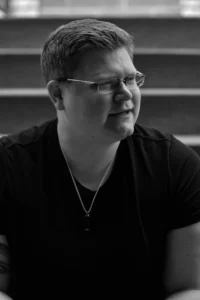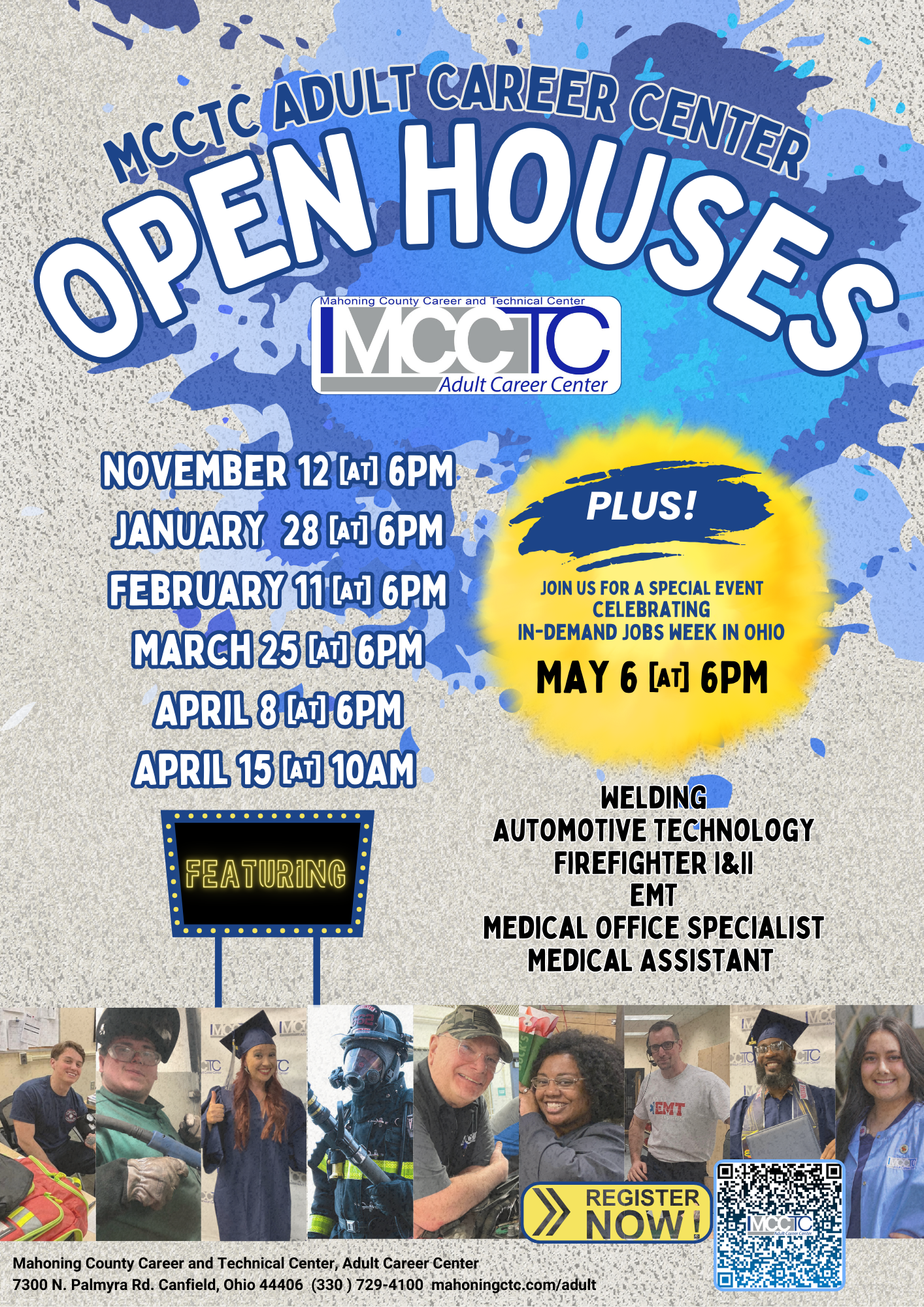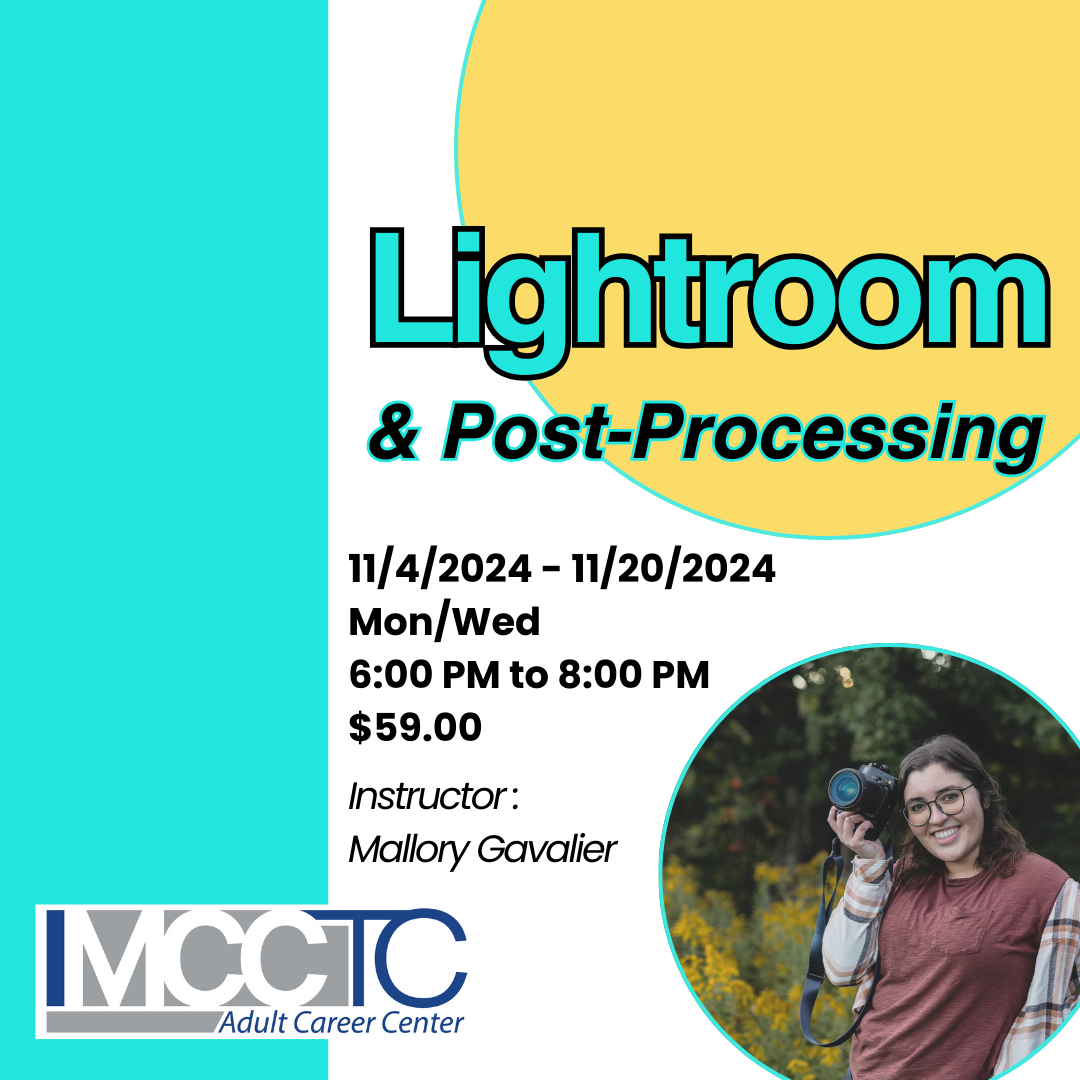People Matter: The Trauma of Nurses and Caregivers
People Matter: The Trauma of Nurses and Caregivers
More Than Just a Job: Part 1
by Dom Fonce
June 23, 2023
Failing to hold back tears, Jodi Coleman tells me her husband passed away from COVID-19 in 2021. I remember how my mother’s world collapsed when my father passed away in 2015. My father received in-home hospice care during his final days. Then she chokes out the truth of it—she, like so many others during this time, could not be with her husband as he died. Of course, it wasn’t easy watching my father die, change his diapers when the nurses left, but at least I was there, and he knew I was there.
Jodi worked as a nurse for 22 years and has worked at Mahoning County Career and Technical Center under multiple roles, including instructor and Medical Assistant Program Director, for 7 years. We’re discussing the current nursing shortage and other shortages in medical fields—how to get more students enrolled in the adult Medical Assistant and STNA programs at MCCTC. She is right to be concerned about a nursing shortage in the United States. More than 100,000 nurses left their jobs since the pandemic. Additionally, 275,000 nurses will be needed in the U.S. by 2030. But the conversation quickly shifts to something that feels more important, the meaningful and intense roles of nurses.
A week after our conversation, Jodi hands me a piece of paper covered in handwritten notes. They read: It was the beginning of my 2020 Christmas break. My husband and I had just put up our tree. Later, I had severe body aches, the loss of taste and smell. Sure enough, I had tested positive for Covid. My husband left work and tested positive as well. His symptoms were mild at first, then started to intensify. He went to the ER. They sent him back home. Two days later, his temperature hit 105°, and he became lethargic. He had to go by ambulance on December 20th, 2020—that was the last time I saw him alive. He passed on January 11th, 2021.
People become nurses to care for others. Jodi says, “It’s an honor to be with someone as their taking their last breath, being a caring face for them, especially if they’re alone.” I ask her if nurses are “caregivers,” and she says, “Yes.” Giving care is a fundamental motivation of nurses and those in medical fields at large. She says, “Even though I couldn’t be with my husband as he died, I know a nurse was there to comfort him.” As she says this, I don’t sense this is merely wishful thinking—she knows her husband saw a caring face as he passed. This understanding of the nursing field, and her prior experiences working with patients, is what gives Jodi solace, but more importantly, it motivates her to educate students entering medical fields.
In the beginning of his hospitalization, he was able to make phone calls, but conversations were short. He was having difficulty breathing. We went to texting several times daily. I spoke with his doctors and nurses, who kept my spirits up and gave me encouraging words while he was critical. The last text I received from him read “I love you.” It was the night before he died.
Jodi has been teaching at MCCTC since 2016. For her, teaching students and caring for patients carry similar experiences. She says, “[students and patients are] human beings living with real life challenges, such as illness, illness of loved ones, divorce, death, children, financial obligations, depression, etc.” Even though Jodi has transitioned from a nursing career into an educational career, she still feels that understanding and encouragement makes people feel valued and cared for, which is a continuous goal for her.
Jodi’s Medical Assistant students become very close-knit during their intense 10-month program. Her students must be comfortable with practicing on each other. She says, “They start out practicing basic vital signs like temperature, pulse, respiration, blood pressure, then they work up to doing EKG’s on each other, which means they must be shirtless and in gowns.” While these students, and the STNA students that Jodi oversees, will not be registered nurses when they finish their programs, they will be heavily involved in the medical field in different roles. Many will go on to become nurses. Most will become caregivers in some capacity. She says, “They must be comfortable touching someone.” I’m asking myself if “touch” and “care” are inseparable.
Even if I was shocked and uncomfortable with caring for my father, I had to take on the caregiver role. I had no choice. I refused to have my father die without dignity. So, I let down my guard, allowed myself to touch him in the way a caregiver must touch. At the point of his death, I couldn’t remember the last time I had even held my father’s hand, but, when he needed it, I did. I comforted him as his final moments rushed forward—walked him into death just as he walked me down the drugstore aisle as a child looking for Spiderman Band-Aids. I told him, “I’ll be okay. It’s okay.” He nodded, and I knew he was also okay.
I was angry, scared, overwhelmed, sad—life didn’t seem fair. I was going to be alone. I was more than angry when I couldn’t even be with him during his final moments. I was contacted by the charge nurse, who asked me if I was home alone, followed by a “please sit down.” I knew what was coming next. The nurse said, “Mrs. Coleman, we are doing CPR on Denny” and “he is not responding to it.” I waited on the line. In a matter of minutes, the doctor took the phone and said, “Mrs. Coleman, I’m sorry, but Denny didn’t make it.” He then said I could come visit him to make arrangements. I remember saying, “What good am I to him now?”
Jodi recalls performing CPR on a woman who collapsed outside of a grocery store and later a man on the side of a highway. She says, “She did make it…but I’m unsure about the man because he was taken off in an ambulance.” She nonchalantly calls this “work-life skills,” but I think there’s more to it than that. Healthcare providers like Jodi are highly-trained Good Samaritans in waiting—like everyone else, they blend into a grocery store crowd. But they differ in their preparedness to give care as crisis occurs. When others are afraid or unsure how to care for a stranger in need, people like Jodi are there to fight for their lives.
I ask Jodi if it’s sometimes hard to care for complete strangers. She tells me a story about a drug dealer, who was rushed into the ER with burns over half his body, that she cared for. While she and other nurses cleaned his wounds, which was a painful procedure, he would cry and beg for them to stop, but they couldn’t stop. She says, “The older nurse that was my mentor wouldn’t even talk to him. She said, ‘He is a drug dealer. He got what he deserved.’” Jodi says it’s not the nurse’s job to judge patients, but to treat them. She continues, “I learned to do the procedure on my own…put soothing music on and talk with him…I learned to stroke or caress patients in a soothing way…always let them know I was there with them.”
For the first few weeks after his death, I was numb. I then became angry—angry at the disease, at the hospital for not letting me be with him, angry at him for dying, angry that for my family, friends, and coworkers, life went on, then angry because I did not want to be pitied. I was scared, lonely. I’d never been on my own before. I felt empty, anxious, irritable. I felt feelings I’d never felt before. I couldn’t concentrate, sleep. I spent months like this.
I’m trying to figure out where the drive for caregiving comes from. Is someone born with this drive or is it ingrained into someone over time? I never expected I’d be called upon to care for my father as he was dying, even if the care was brief, but I did so, and the drive to care for him felt natural. Maybe the care I gave to my father came naturally because it felt familiar—he cared for me, helped raise me, so I just copied him. Maybe it was because I loved him that made caregiving so easy. But, it’s difficult to imagine giving similar care to a complete stranger, yet this is the life of a nurse.
Jodi says the inclination to put others’ needs above your own doesn’t come naturally. Maybe she is right. I’ve always seen humans as self-preserving beings at the core, but that doesn’t explain our intangible qualities—as Jodi lists, “Compassion, empathy, kindness, supportiveness, understanding, and sensitivity.” These are all intangible qualities healthcare providers need. In my life, these unexplainable human qualities arise in buying a friend a drink at the bar or spending the afternoon with my grandmother. No, I don’t need to do these things to survive, but I want to do these things for people. Doing so makes me and the other person feel whole. Whatever that impulse is to make others feel loved is what I think healthcare providers have tapped into more or have an abundance of.
Eventually, as with everything, time heals. Talking about Denny brought up good and happy memories. I noticed I was smiling more. The pain was easing, and I was able to accept what happened. I am learning to live again, but keep the memories close.
This unconditional love is what I had to tap into when caring for my father. This is what the nurse who cared for Jodi’s husband tapped into. This is what Jodi tapped into when treating the drug dealer, when teaching her students, or saving a woman in a grocery store. People matter. People matter from the start of their lives until the end. To me, becoming a healthcare provider, nurse, medical assistant, or caregiver is an honorable job, worthy of huge public praise. I think what makes these people like Jodi special is that they live by this motto: you matter, and I’m going to prove it to you.
Read another story

Dom Fonce is a Marketing Content Writer for Mahoning County Career and Technical Center Adult Career Center. He holds a bachelor’s degree in English from Youngstown State University and a Master of Fine Arts degree from the NEOMFA. He has published two books of poetry. His work can be found at domfoncepoetry.com.



